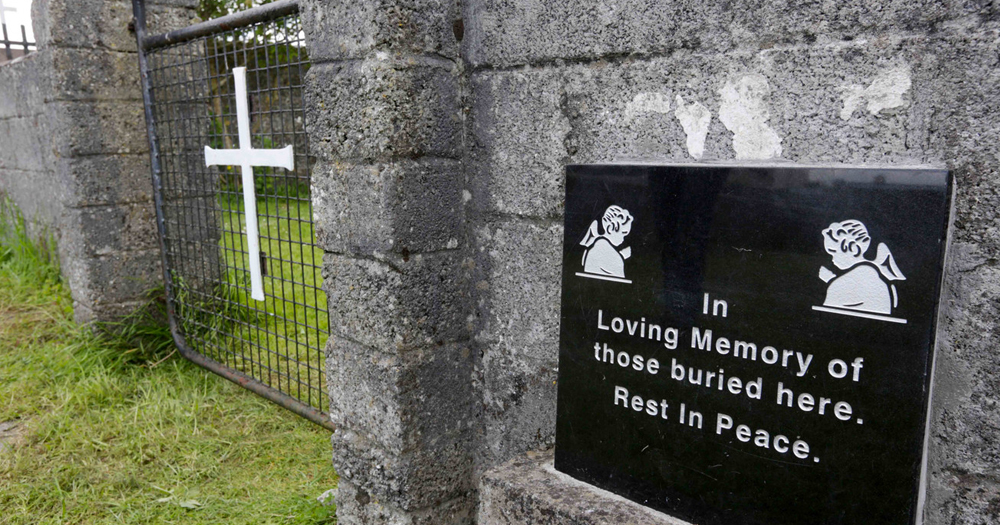Last night the Dáil passed a controversial bill regarding the records of Mother and Baby homes by 78 votes to 67. Apart from a database which is being sent to the child and family agency, Tusla, the records will be sealed for the next 30 years.
Many TDs and activists have reacted angrily to the Government’s decision to reject all Opposition amendments to the controversial Mother and Baby Homes bill. Activists had hoped to allow survivors of the system to decide whether their names and testimony should be disclosed, but their amendments were refused.
After almost six years, the Mother and Baby Homes Commission of Investigation is about to present its final report to Government. The Commission was tasked with examining: entry and exit patterns of women and children in 15 mother and baby homes and four county homes; care arrangements in these institutions; mortality and post-mortem practices; the extent of compliance with relevant regulatory and ethical standards of vaccine trials carried out in some of the institutions; and adoption issues relating to children born in them.
The Commission was also asked to provide “a literature-based academic social history module to establish an objective and comprehensive historical analysis of significant matters”.
The sealing of departmental and other records, also means that any history contained in the Commission’s report when it is eventually published, cannot be verified. This is no way to do justice to survivors and their families, and it is no way to do public history.
The archive likely includes the registers listing women and children in the institutions examined, as well as departmental records, local authority records, diocesan records, records from British and US archives and, the administrative records of the congregations that ran these homes.
Despite opposition from survivors, from those who’s lives are still impacted by the legacy of Mother & Baby Homes, from Human Rights lawyers, the Bill has passed. I’m so sorry to all those impacted by this travesty. #UnsealTheArchive ? pic.twitter.com/Gaee2AOEMS
— Gary Gannon TD (@GaryGannonTD) October 22, 2020
The Mother and Baby Homes Records Bill in its current form fails to vindicate the rights of survivors under the General Data Protection Regulation (GDPR). The GDPR gives individuals many rights in respect of their personal data, including the right to be informed and the right of access. The GDPR does not allow the Government to seal the entire archive. Under Article 23, restrictions can only be placed on data subject rights to the extent necessary and proportionate in a democratic society to achieve a legitimate aim, and only in a way that still respects the essence of the right.
Although section 198 of the Data Protection Act 2018 places a restriction on the right of subject access to personal data in the archives of Commissions of Investigation, this is only permissible to the extent necessary and proportionate to safeguard the effective operation of commissions and the future cooperation of witnesses. Preventing individuals who were forcibly separated from their family members from accessing their own personal and family records do not satisfy this test.
The Bill should be amended to confirm that the GDPR applies to the archive. The Government should also release any departmental records over 30 years old that would ordinarily be required to be deposited in the National Archives.
For the past month the Minister in every briefing and debate on the Bill has instructed his officials to implement an unlawful policy when they receive the Commission’s archive:
ie to send letters like this: https://t.co/OKlVQm7jlO
So I think harm has been done
— Dr Maeve O'Rourke (@maeveorourke) October 23, 2020
The main criticisms centre on the Bills’ failure to vindicate survivors’ rights to access their personal records, and its sealing of the administrative files that document the institutional, social and economic frameworks surrounding the system. Survivors may, at least in theory, access some of their personal information by requesting it from Tusla. However, survivors’ documented experiences of engaging with the agency, indicate that the process of seeking access to their information will be protracted and difficult, with no guarantee of success.
The sealing of departmental records entrenches the refusal to allow survivors to learn about how and why the system was set up and operated as it was.
The Bill is this evening in the Seanad for a final vote. Senators are bringing up the recent Irish Examiner report revealing that the Data Protection Commission has stated that the Bill is contravening European and Irish law on the accessibility of personal data.
The Minister has stated that he is committed to addressing the concerns around the 30-year rule and is willing to consult with survivor groups and academic experts on the next steps.
Sinéad Ring is a lecturer in the Department of Law at Maynooth University. Sinéad is an expert in criminal law and evidence, victims’ studies and feminist legal studies.
© 2020 GCN (Gay Community News). All rights reserved.
Support GCN
GCN is a free, vital resource for Ireland’s LGBTQ+ community since 1988.
GCN is a trading name of National LGBT Federation CLG, a registered charity - Charity Number: 20034580.
GCN relies on the generous support of the community and allies to sustain the crucial work that we do. Producing GCN is costly, and, in an industry which has been hugely impacted by rising costs, we need your support to help sustain and grow this vital resource.
Supporting GCN for as little as €1.99 per month will help us continue our work as Ireland’s free, independent LGBTQ+ media.
